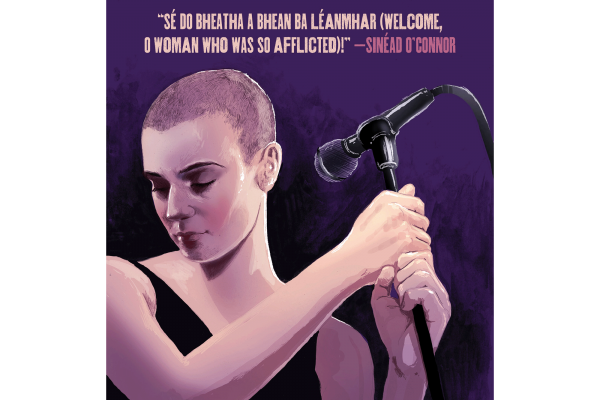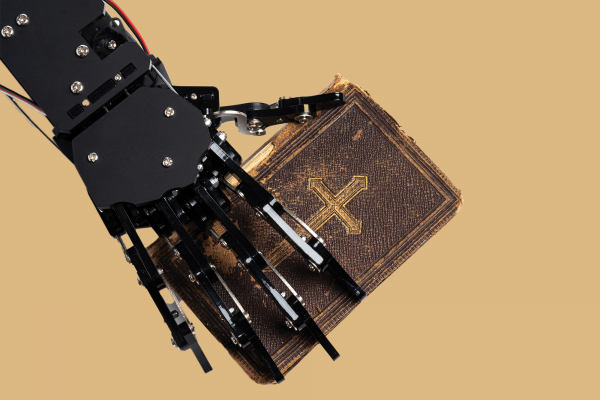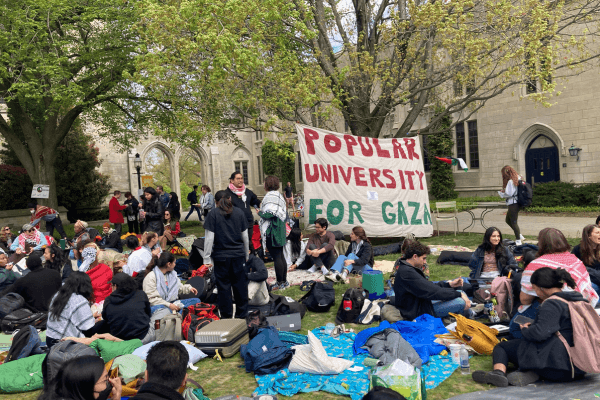I grew up with a specific understanding of what it meant be in “solidarity” with others. As a highly empathetic kid, my energy to care for other people was channeled into how well I could help them accept Jesus as their Lord and Savior — which was tied to how well I could keep my own soul safe from the devil.
The most popular girl in my school happened to visit my church once or twice. I immediately fixated on her as someone who needed saving, someone I could help. Now I know, of course, that there were huge holes in my theology. Instead of just being, I was constantly motivated to do, for the sake of the gospel. I was constantly trying to save souls, but in the process, I didn’t always actually come away with friendship, or, more importantly, solidarity.
Certainly there was an amount of solidarity in the church denominations I grew up in. We all believed in Jesus and we had a job to do: evangelize. But we were missing the work of solidarity around us, outside our circles, with human and non-human creatures who are just as beloved in this world.
As I write in my new book, Native: Identity, Belonging and Rediscovering God, “our spiritual realities do not exist in a vacuum. To be connected to our own spirituality, we must be connected to the spirituality of others.” By this, I mean that what affects one of us affects all of us. It’s a collective way of being and belonging, one not often understood by Western thought.
In this global COVID-19 pandemic, we are reeling from individual and collective grief. We are trying to figure out what life looks like on the other side, hoping for something “normal” but unsure of what that even means.
But in the meantime, we can practice this work of solidarity with one another. This means our only way of being is understanding our tie to the collective embrace.
This doesn’t mean we can’t individually grieve; we all have things that are happening in our lives that are deeply personal and affect only us in this time. But we also hold a collective reminder of our grief, the grief of the whole, the worldwide grief that acknowledges all that is broken.
We hold solidarity with disabled people who gave early warning messages that abled people didn’t listen to.
We hold solidarity with the inequity of black, Indigenous, and people of color populations that are being disproportionately affected by this.
We hold solidarity with parents who are exhausted and feel like they can’t get anything done and with those who are alone and need someone to hug them.
We hold solidarity with high school and college seniors who won’t get to walk in graduation ceremonies and with elders who can’t hug their grandchildren.
We hold solidarity with essential workers who are exhausted and scared of getting sick every single day.
We hold solidarity with the heroes who are making masks and raising funds to help others through hard times.
We hold solidarity with those who have lost their friends and family members and can’t attend their funerals in person.
Here in Georgia, Gov. Brian Kemp is attempting to reopen the state, and I am practicing solidarity by continuing to stay home, aware that many of my friends don’t have that option.
We hold solidarity with one another when our leaders make decisions that foster more danger and oppression.
We grieve, we grieve, we grieve.
And all of our grief is messy, full of gray area, full of liminal spaces in the in-between where we mourn our own losses and hold one another up in our collective loss. This solidarity stretches past religion and race and social class. It stretches past dividing lines of countries and across whole oceans.
We hold collective solidarity with all humans because we are all scared, we are all affected, and we are all asking what’s on the other side of this.
We hold collective solidarity with this earth as we challenge ourselves to be better to her because she deserves better.
So the question is, as we continue to practice social distancing, as we continue to stay home and take care of ourselves and each other, what is your act of solidarity? What is one thing that you can hold on to as the thing that connects you to others, that reminds you of your own sacred belonging and the sacred belonging of those around you?
Let’s lean into those spaces.
Let’s embrace the wild nuance of it all, even when it’s hard.
We have no idea what anything will look like on the other side of this.
Let’s choose solidarity from here on out, so that when we cross the threshold, no one is left behind, and everyone is embraced just as they are.
“The surprise of surprises is God within us. This makes us ask: how can we grow more open in hope?” – Brother David Steindl-Rast
Got something to say about what you're reading? We value your feedback!







